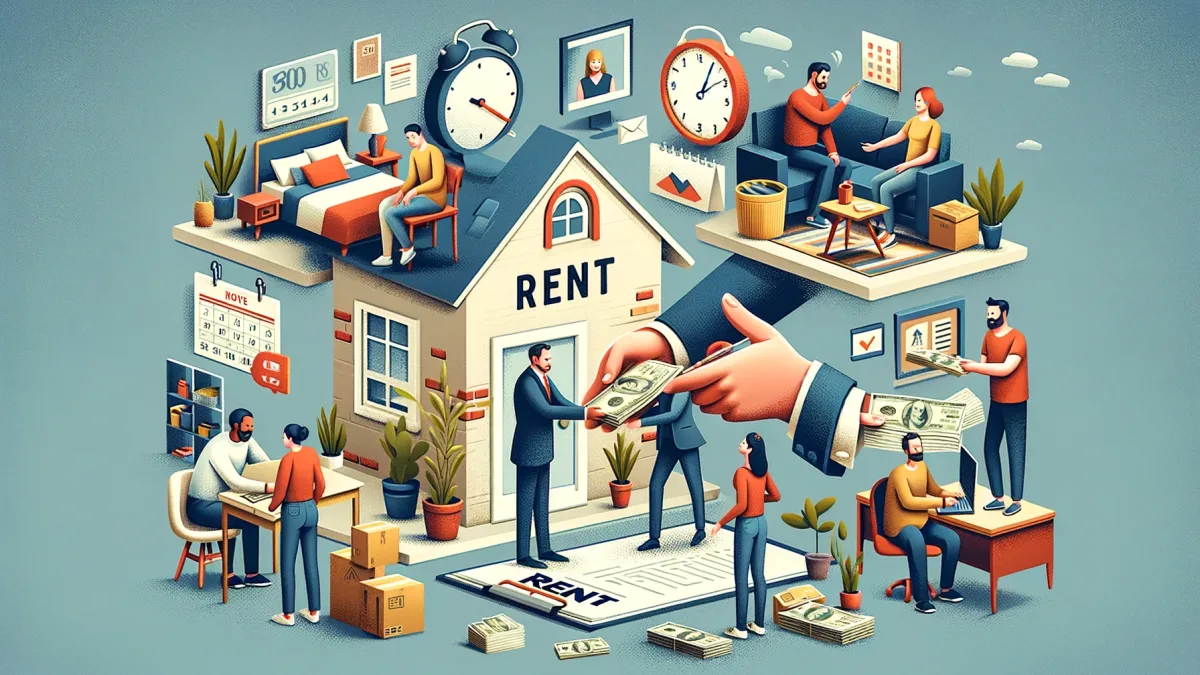Hey, there! Navigating the waters of landlord-tenant relations can sometimes feel like trying to steer a kayak through a storm. Especially when it comes to the dreaded issue of late rent payments. Let’s chat about what the law often considers acceptable reasons for your rent check arriving a tad behind schedule.
Understanding Rent Payment Agreements
First things first, your lease agreement is basically the rulebook for your tenancy. This document should outline the due dates for rent, grace periods (if any), and any fees associated with late payments. But life happens, right? Even the most punctual payer can face unexpected hurdles.
Commonly Accepted Excuses for Late Rent
While laws vary from state to state, and there’s no one-size-fits-all answer, there are several scenarios where the delay in rent might be viewed with understanding:
- Medical Emergencies: If you or a close family member has a sudden health crisis, this can be a solid reason. Health comes first, and many landlords are human too.
- Job Loss or Reduction in Hours: In the unpredictable economic climate, losing a job or experiencing a significant reduction in work hours can hit your wallet hard. Most jurisdictions encourage landlords to consider these situations sympathetically.
- Unexpected Major Expenses: Life can throw a curveball in the form of urgent car repairs or crucial home appliances breaking down. If these expenses threaten your ability to pay rent on time, communication with your landlord is key.
- Natural Disasters or Unforeseeable Events: Events like floods, earthquakes, or even pandemics can disrupt normal life and finances. Laws often account for these “acts of God,” offering tenants some leeway.
Legal Protections and Considerations
It’s crucial to know your rights and any legal protections in place for tenants in your area. For instance, many regions have enacted temporary protections against eviction for non-payment of rent due to the COVID-19 pandemic. Always check the latest legal provisions or consult a legal expert to understand current laws affecting tenancy agreements.
The Importance of Communication
Regardless of the reason, open and honest communication with your landlord is paramount. Many landlords prefer to work out a payment plan rather than go through the eviction process, which can be costly and time-consuming for both parties.
Documentation Is Your Best Friend
Whenever you find yourself unable to make rent on time for a legitimate reason, document everything. Keep records of medical bills, communication with your employer about job changes, receipts for emergency expenses, or any relevant correspondence with your landlord.
Proactive Steps to Take
- Notify Your Landlord ASAP: The sooner you let them know, the more willing they might be to work with you.
- Offer a Partial Payment: Showing goodwill by paying what you can afford can go a long way.
- Suggest a Payment Plan: Propose a realistic plan to pay back the owed rent in installments.
- Seek Legal Advice: If you’re unsure about your rights or the best course of action, consulting with a tenant rights lawyer can be invaluable.
Wrapping Up
Life’s unpredictability can affect anyone’s ability to pay rent on time. While not every reason might fly with your landlord or legally protect you from eviction, understanding commonly accepted excuses, your rights, and the importance of communication can help navigate these choppy waters. Remember, a little empathy goes a long way—most landlords appreciate tenants who are upfront and make an effort to meet their obligations, even if slightly delayed.









Leave a Reply